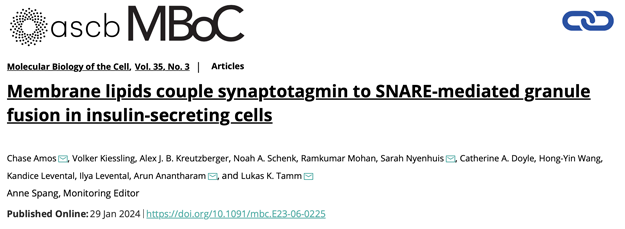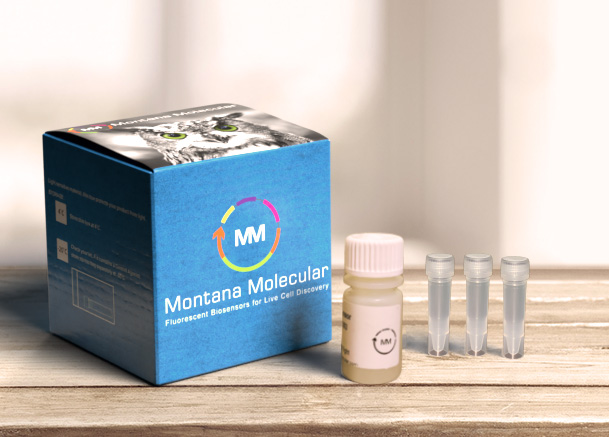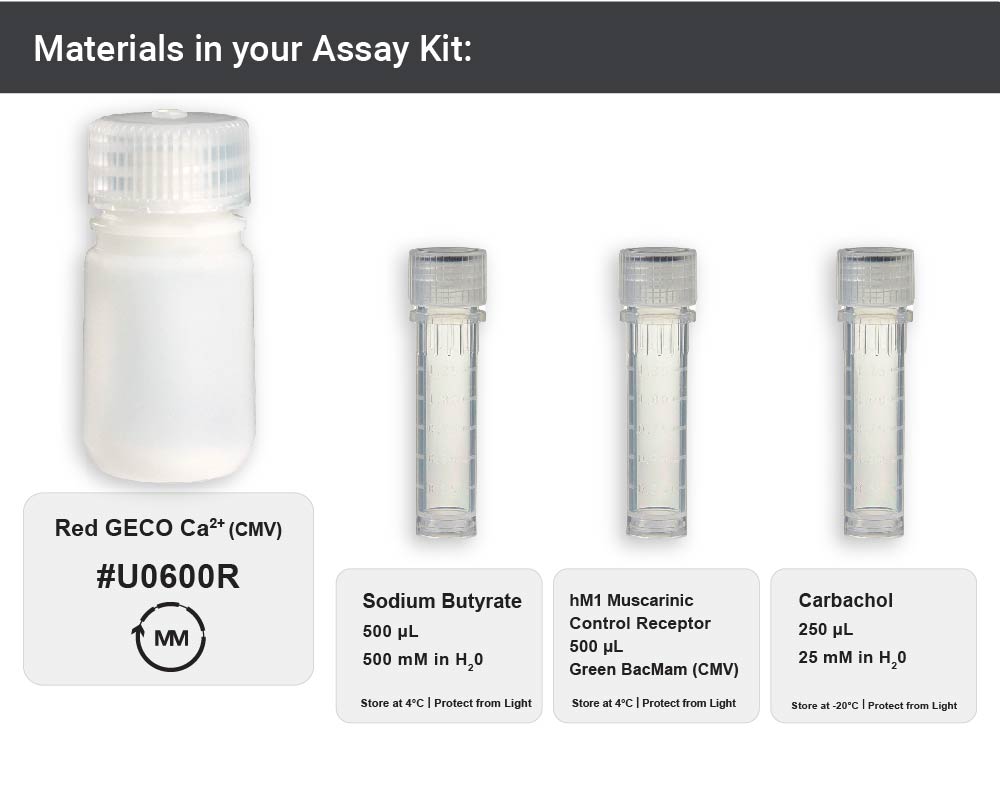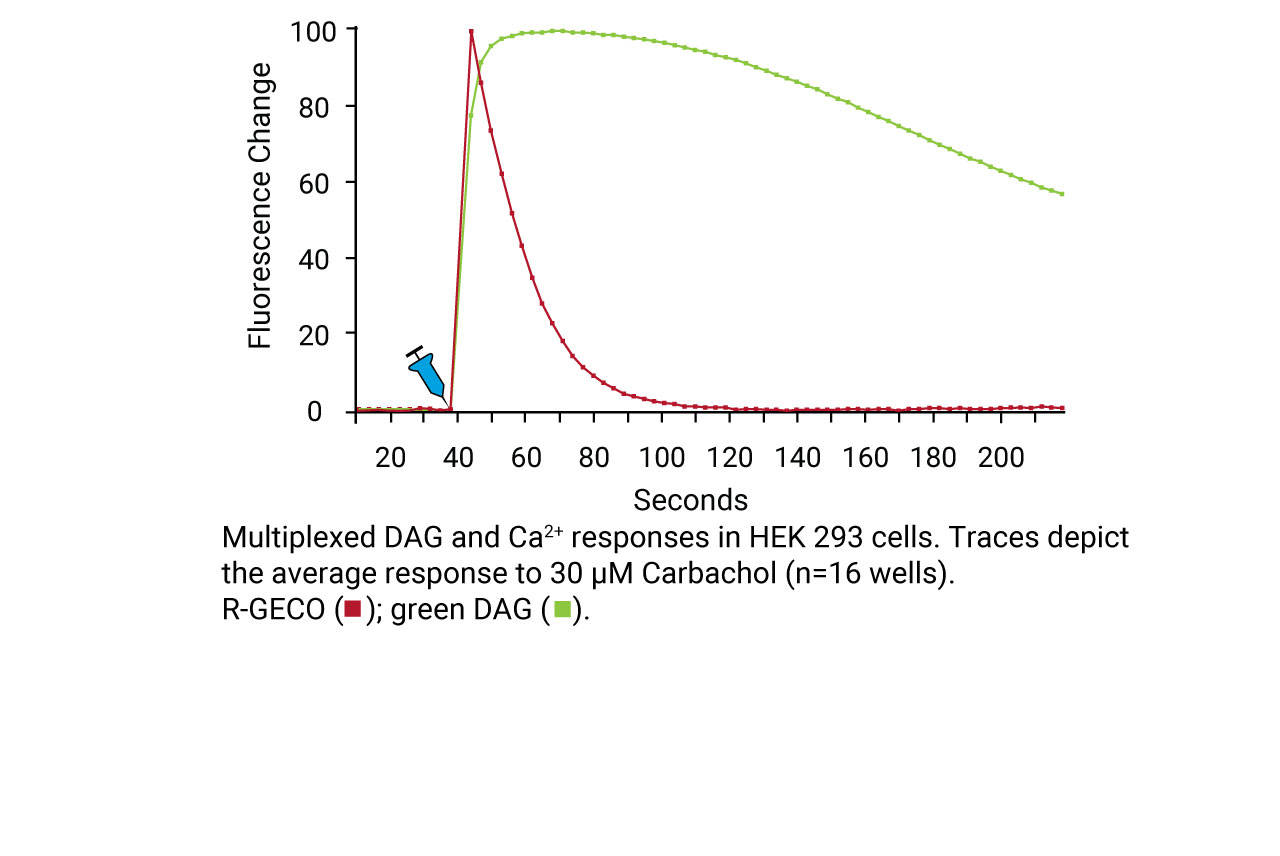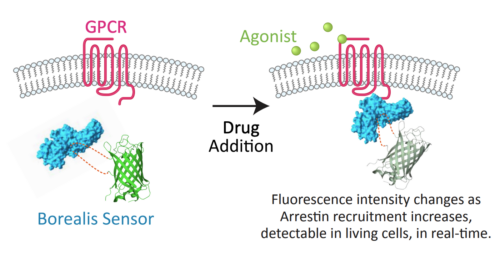#U0600R Red GECO Ca2+ Assay Kit
$795.00 – $2,895.00
Red fluorescent calcium assay for detecting real-time calcium signaling on fluorescence plate readers and imaging systems. Standard stock comes with CMV promoter. Other promoters are available, please inquire!
The fluorescent, genetically-encoded Ca2+ indicator (GECO) was developed by Robert Campbell’s lab at University of Alberta. R-GECO can be paired with green fluorescent cADDis, cAMP sensor, or our Upward and Downward DAG sensors to simultaneously detect both Ca2+ and cyclic AMP or Ca2+ and diacylglycerol in living cells. The BacMam delivery system enables consistent and controllable expression in a wide variety of cell types including iPSC-derived cardiomyocytes and neurons. More details on this tool can be found on the Calcium Assays page.
Materials in the Kit:
• R-GECO Ca2+ Sensor BacMam
• Sodium Butyrate, 500 mM in H2O
• Z0200G M1 Muscarinic acetylcholine Receptor BacMam with nuclear green label
• Carbachol 25 mM in H2O
Additional information
| Protocol for Use | https://montanamolecular.com/calcium-assay-kit-geco/red-geco-ca2-protocol/ |
|---|---|
| Shipping | We strive for prompt delivery of each order, so we ship by FedEx 2-day service in lightweight, sturdy, and reusable/biodegradable packaging with an insulated cooler and moisture-resistant refrigerant gel packs. Shipping days are Mon-Wed so product does not sit in transit over the weekend. Web store ships to US & Canada only, contact sales for other locations. |
| MSDS | |
| More Info | |
| Scientific Publications | |
| Kit Volume | 10mL, 30mL, 60mL |
GPCR Assay References
Borealis Arrestin Assay References
- A. Ippolito, et al. Increased 5-HT2A receptor signalling efficacy differentiates serotonergic psychedelics from non-psychedelics. bioRxiv. June 2024.
- H. Schiff, et al. β-arrestin-biased proteinase-activated receptor-2 antagonist C781 limits allergen-induced airway hyperresponsiveness and inflammation. British Journal of Pharmacology. June 2022.
- S. Hoare, et al. Quantifying the Kinetics of Signaling and Arrestin Recruitment by Nervous System G-Protein Coupled Receptors. Frontiers in Cellular Neuroscience. January 2022.
- S. Hoare, T. Hughes. Biosensor Assays for Measuring the Kinetics of G-Protein and Arrestin-Mediated Signaling in Live Cells. The Assay Guidance Manual. September 2021.
- S. Hoare, et al. Analyzing kinetic signaling data for G-protein-coupled receptors. Nature Scientific Reports. July 2020.
- S. Hoare, et al. A kinetic method for measuring agonist efficacy and ligand bias using high resolution biosensors and a kinetic data analysis framework. Nature Scientific Reports. Feb 2020.
cADDis cAMP Assay References
- S. Shi, et al. A high-affinity, cis-on photoswitchable beta blocker to optically control β2-adrenergic receptors in vitro and in vivo. Biochemical Pharmacology. June 2024.
- S. Ansari, et al. Sonic Hedgehog activates prostaglandin signaling to stabilize primary cilium length. Journal of Cell Biology. June 2024.
- A. Oqua, et al. Molecular mapping and functional validation of GLP-1R cholesterol binding sites in pancreatic beta cells. bioRxiv. June 2024.
- R. Schuck, et al. Cholesterol inhibits assembly and activation of the EphA2 receptor. bioRxiv. June 2024.
- X. Chen, et al. A PACAP-activated network for secretion requires coordination of Ca2+ influx and Ca2+ mobilization. Molecular Biology of the Cell. May 2024. (bioRxiv)
- L. Bridge, et al. Computational modelling of dynamic cAMP responses to GPCR agonists for exploration of GLP-1R ligand effects in pancreatic β-cells and neurons. Cellular Signaling, April 2024.
- R. Fagan, et al. Selective targeting of mu opioid receptors to primary cilia. Cell Reports. April 2024.
- G. Austin, et al. An inter-organelle contact between endosomal GLP-1R, ER VAP-B, and the mitochondrial AKAP SPHKAP triggers PKA-dependent MIC19 phosphorylation and β-cell mitochondrial remodelling. bioRxiv. April 2024.
- I. Cattani-Cavalieri, et al. Real-Time cAMP Dynamics in Live Cells Using the Fluorescent cAMP Difference Detector In Situ. Journal of Visualized Experiments. March 2024.
- B. Polacco, et al. Profiling the proximal proteome of the activated μ-opioid receptor. nature chemical biology. March 2024.
- P. Balraj, et al. Kisspeptin/KISS1R Signaling Modulates Human Airway Smooth Muscle Cell Migration. American Journal of Respiratory Cell and Molecular Biology. March 2024.
- J. Xu, et al. An evolutionarily conserved olfactory receptor is required for sex differences in blood pressure. Science Advances. March 2024 (bioRxiv)
- J. Alvarado et al. Transient cAMP production drives rapid and sustained spiking in brainstem parabrachial neurons to suppress feeding. Neuron. February 2024. (bioRxiv)
- H. Hamzeh, et al. Deciphering rapid cell signaling and control of cell motility by reverse opto-chemical engineering. bioRxiv. February 2024.
- N. Philip. Fatty acid metabolism promotes TRPV4 activity in lung microvascular endothelial cells in pulmonary arterial hypertension. Lung Cellular and Molecular Physiology. January 2024.
- L. Ripoll & M. von Zastrow. Spatial organization of adenylyl cyclase and its impact on dopamine signaling in neurons. bioRxiv. December 2023.
- T. Richardson, Y. Pettway, et al. Human Pseudoislet System for Synchronous Assessment of Fluorescent Biosensor Dynamics and Hormone Secretory Profiles. Journal of Visualized Experiments. November 2023.
- C. Hinds, et al. Abolishing β-arrestin recruitment is necessary for the full metabolic benefits of G protein-biased glucagon-like peptide-1 receptor agonists. Diabetes, Obesity and Metabolism. October 2023.
- E. Blythe & M. von Zastrow. β-Arrestin-
independent endosomal cAMP signaling by a polypeptide hormone GPCR. Nature Chemical Biology. September 2023. - R. Matt, et al. Fingerprinting heterocellular β-adrenoceptor functional expression in the brain using agonist activity profiles. Frontiers in Molecular Biosciences. August 2023.
- Y. Kunioku, et al. Intracellular cAMP Signaling Pathway via Gs Protein-Coupled Receptor Activation in Rat Primary Cultured Trigeminal Ganglion Cells. Biomedicines. August 2023.
- K.M. Semesta, et al. The psychosis risk factor RBM12 encodes a novel repressor of GPCR/cAMP signal transduction. Journal of Biological Chemistry. August 2023.
- Y.J. Peng, et al. Hypoxia sensing requires H2S-dependent persulfidation of olfactory receptor 78. Science Advances. July 2023.
- S. Zhang, et al. Competition between stochastic neuropeptide signals calibrates the rate of satiation. bioRxiv. July 2023.
DAG Assay References
- X. Chen, et al. A PACAP-activated network for secretion requires coordination of Ca2+ influx and Ca2+ mobilization. Molecular Biology of the Cell. May 2024. (bioRxiv)
- S. Datta, et al. APOL1-mediated monovalent cation transport contributes to APOL1-mediated podocytopathy in kidney disease. The Journal of Clinical Investigation. January 2024. (Supplemental Data)
- Z. Miller, et al. Lidocaine induces apoptosis in head and neck squamous cell carcinoma through activation of bitter taste receptor T2R14. Cell Reports. November 2023. (bioRxiv)
- N. Zaïmia, et al. GLP-1 and GIP receptors signal through distinct β-arrestin 2-dependent pathways to regulate pancreatic β cell function. Cell Reports. October 2023.
- G. Sanchez, et al. Coincident Regulation of PLCβ Signaling by Gq-Coupled and μ-Opioid Receptors Opposes Opioid-Mediated Antinociception. Molecular Pharmacology. December 2022.
- Z. Miller, et al. Lidocaine Induces Apoptosis in Head and Neck Squamous Cell Carcinoma Cells Through Activation of Bitter Taste Receptor T2R14. bioRxiv. November 2022.
- M. Doepner, et al. Endogenous DOPA inhibits melanoma through suppression of CHRM1 signaling. Science Advances. September 2022.
PIP2 Assay References
- L. Brueggemann, et al. Structural Determinants of Kv7.5 Potassium Channels that Confer Changes in Phosphatidylinositol 4,5-Biphosphate (PIP2) Affinity and Signaling Sensitivity in Smooth Muscle Cells. Molecular Pharmacology. March 2020.
- L.Liu, et al. Gαq sensitizes TRPM8 to inhibition by PI(4,5)P2 depletion upon receptor activation. J.Neurosci. May 2019.
- , and Teaching an Old Drug New Tricks: Agonism, Antagonism, and Biased Signaling of Pilocarpine through M3 Muscarinic Acetylcholine Receptor Molecular Pharmacology Nov. 2018
GECO Calcium Assay References
- X. Chen, et al. A PACAP-activated network for secretion requires coordination of Ca2+ influx and Ca2+ mobilization. Molecular Biology of the Cell. May 2024. (bioRxiv)
- C. Amos, et al. Membrane lipids couple synaptotagmin to SNARE-mediated granule fusion in insulin-secreting cells. Molecular Biology of the Cell. December 2023.
- J. Wu, et al. Interaction Between HCN and Slack Channels Regulates mPFC Pyramidal Cell Excitability and Working Memory. bioRxiv. March 2023.
- M. Thomas, et al. Optically activated, customizable, excitable cells. PLOS One. December 2020.
- L. Liu, et al. Diacylglycerol kinases regulate TRPV1 channel activity. Journal of Biological Chemistry. April 2020.
- S. Hoare, et al. A kinetic method for measuring agonist efficacy and ligand bias using high resolution biosensors and a kinetic data analysis framework. Nature Scientific Reports Feb 2020.
- K. Harlen, et al. Live-Cell Assays for Cell Stress Responses Reveal New Patterns of Cell Signaling Caused by Mutations in Rhodopsin, α-Synuclein and TDP-43 Front. Cell. Neurosci.,December 2019

